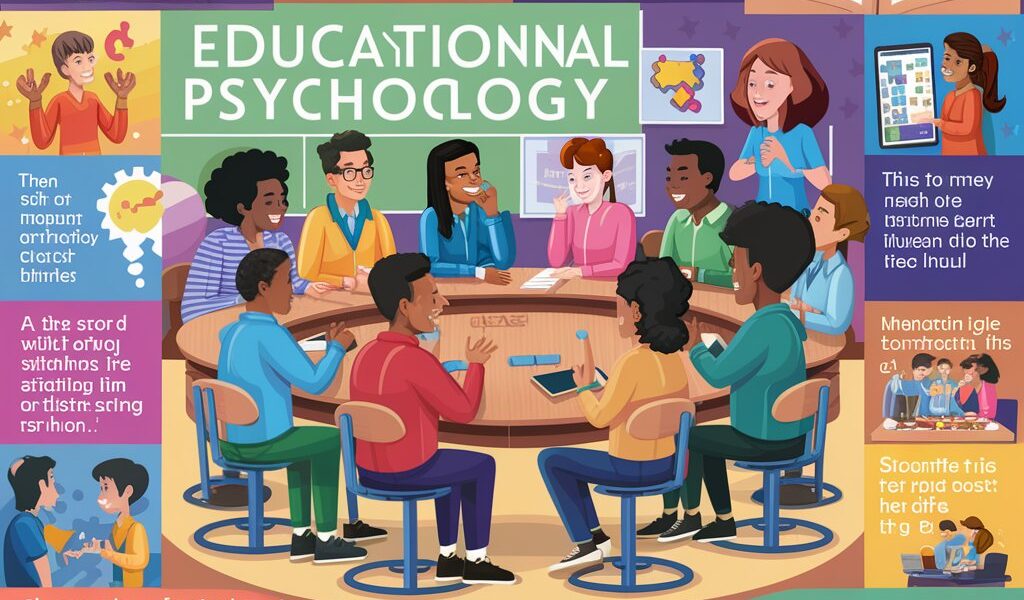Educational psychology to understand why students do not learn, the article also presents an analytical research, based on the foundations of authors such as Maria a Weiss and Alicia Fernández, since these authors emphasize in their works the obstacles to learning, as a contributing cause of School Failure.
Learning difficulties end up causing school failure and psych pedagogy, as an approach that studies the learning process, acts to overcome these difficulties under an institutional or clinical character.
Psych PSYCHOPEDAGOGICA is the approach that investigates and understands the learning process and the relationship that the learning subject establishes with it, considering the interaction of social, cultural and family aspects. The PSYCHOPEDAGOGICA articulates contributions from areas such as Psychology, Pedagogy and Medicine, among others, with the objective of making available to the individual the construction of their knowledge and the resumption of their learning process. And, furthermore, it seeks to enable the flourishing of new needs, in order to provoke the desire to learn and not only an improvement in school performancept.
UNDERSTANDING LEARNING DIFFICULTIES
In order to recognize a child’s learning difficulties, it is necessary to first understand what learning is and what factors interfere with it. defines learning as the acquisition of a skill or information based on existing intellectual structures.
It can be said that learning is a complex process that takes place within the individual and manifests itself in a change in behavior. Thus, it is cognitive development that determines learning . From this concept, we recognize that in the learning process:
“the subject who does not learn does not perform any of the social functions of education, undoubtedly accusing its failure, but succumbing to this failure. Psych pedagogy, as a technique for conducting the psychological process of learning, brings with its exercise the fulfillment of both educational purposes.”
To understand Learning Difficulties (LDs), it is necessary to know their origin, as this is an important factor in understanding the child in the learning process. For Fonseca 3 , learning difficulties are:
“A general term referring to a heterogeneous group of disorders manifested by significant difficulties in the acquisition and use of auditory comprehension, speech, reading, writing, and mathematical reasoning. Such disorders, considered intrinsic to the individual and presumed to be due to central nervous system dysfunction, may occur throughout the lifespan. Problems of self-regulation of behavior, social perception, and social interaction may exist with LDs. Although LDs occur with other disabilities (e.g., sensory impairment, intellectual disability, socioemotional disturbances) or with extrinsic influences (e.g., cultural differences, insufficient or inadequate or inappropriate instruction, etc.), they are not the result of these conditions.”
Through this concept, it is possible to perceive the complexity of the term and the vast field of action of ADs. These are growing more and more and absorb a diversity of educational problems and external events.
How to Educational psychology Learn from Failure
Since learning disabilities are problems faced by children in the learning process, which may be related to the dynamics of behavior itself, Sista 1 argues that the term learning difficulties encompasses a heterogeneous group of disorders, manifesting themselves through delays or certain types of difficulties.
The same author talks about the importance of looking at the organic, cognitive, emotional, social, affective and pedagogical aspects that lead the student to not learn.
Fonseca describes two types of ADs: primary and secondary. Primary ADs arise from causes not attributed to well-explained psychoneurological elements, such as brain dysfunctions. These include Reading Disorder, Mathematics Disorder, Written Expression Disorder, and Spoken Language Disorders (which encompass Expressive Language Disorder and Mixed Receptive-Expressive Language Disorder). Secondary ADs result from specific biological factors or behavioral and emotional alterations, such as brain lesions, Cerebral Palsy, Epilepsy, and Mental Retardation.He also adds the sensory systems, through Hearing Impairment, hyperacusis, visual impairment and amblyopia. Still on the subject of biological causes, AD situations are consequences of other perceptive problems that affect discrimination, synthesis, memory and spatial relationship and visualization.
THE PSYCHOPEDAGOGICAL APPROACH
Psych PSYCHOPEDAGOGICA is the approach that investigates and understands the learning process and the relationship that the learning subject establishes with it, considering the interaction of social, cultural and family aspects. The PSYCHOPEDAGOGICA articulates contributions from areas such as Psychology, Pedagogy and Medicine, among others, with the objective of making available to the individual the construction of their knowledge and the resumption of their learning process. And, furthermore, it seeks to enable the flourishing of new needs, in order to provoke the desire to learn and not only an improvement in school performance.
The first PSYCHOPEDAGOGICA centers originated in Europe, from the second half of the 20th century, and served people who presented LDs, due to the coherence of pedagogical and psychoanalytic knowledge .
At that time, in the US, this movement understood LDs as having a biological basis, which allowed for the emergence of many definitions to distinguish those who learned from those who did not. And so, in Europe ,PSYCHOPEDAGOGICA emerged, which influenced Argentina, which began to use reeducation to care for people with LDs, and in the US, the movement stimulated School Psychology.
Therefore ,PSYCHOPEDAGOGICA emerged to fill an empty space left by Psychology and Pedagogy regarding their difficulties in explaining issues related to learning.
It is clear that Pedagogy, not being able to meet the demand, needs knowledge articulated with Psychology, to overcome marginalized knowledge – marginalized because society despises all knowledge that does not meet a certain standard.
Educational psychology. . Learning disorders.
Weiss identifies failure to learn at school as one of the causes of academic failure. She emphasizes that the issue is much broader, considering academic failure to be a student’s insufficient response to a school requirement or demand. She studies the issue from different perspectives.
The first perspective is society, where we take into account, as influencing agents in education, culture, current political-social and economic conditions and relations, the type of social structure, dominant ideologies, etc. Society deprives many learners of learning, taking away their opportunities for cultural growth, language development and cognitive construction.
Weiss 9 states that if the learner is deprived of language development, he or she is also deprived of access to reading and writing development, and that socioeconomic and cultural conditions will influence the physical aspects of poor students, as they will be exposed to various types of diseases that may leave them with learning disabilities.
The second perspective is the school, which contributes greatly to the academic failure of its students. The lack of qualified professionals, the lack of teaching materials, the lack of physical and pedagogical structure, the poor quality of teaching, all of this makes the school a contributing agent to learning problems and academic failure. But this is a problem that requires social and educational contribution.
We must recognize that schools lack the incentive to teach and learn, and the recognition that we are all learners. That, every minute, all individuals contribute to the construction of general history, the history of their country, their society, their school, their family, and especially the history of the individual themselves. We recognize that we are all capable of producing knowledge, and that the lack of opportunities to build it harms the ontological idea of being subjects of our history.
-
Embrace the Experience:
- Don’t try to sweep your failures under the rug. Acknowledge them, reflect on what went wrong, and consider how you can apply this knowledge moving forward.
-
Analyze Without Blaming:
- It’s easy to point fingers when things go wrong, but this isn’t productive. Instead, focus on understanding the factors that contributed to the failure—whether they were within your control or not.
-
Seek Feedback:
- Sometimes, we’re too close to a situation to see it objectively. Asking for feedback from others can provide new insights and help you recognize patterns you might have missed.
-
Make Adjustments
- : Use the lessons learned to tweak your approach. Whether it’s refining your strategy, improving your skills, or adjusting your mindset, take concrete steps to ensure that your next attempt benefits from your previous experience.
-
Share Your Story:
- Don’t be afraid to talk about your failures. Sharing your experiences can help others in similar situations and contribute to a culture where failure is seen as a stepping stone rather than an endpoint.
THE PSYCHOANALYTICAL VIEW ON SCHOOL FAILURE
In the psychoanalytic view of Alicia Fernández 4 , the individual in the learning process who presents difficulties in learning may be developing a unique mechanism to cope with the changes in his/her emotional history. Thus, failure can be understood as a school symptom (according to the author), that is, a type of obstacle in learning that develops an intersection of social, cultural, family, organic, pedagogical aspects, as well as affective and intrapsychic factors.
For Fernández 4 , in the learning process, the learning subject is in contact with cognitive resources, but not only these, and not only mental. They are also in contact with their desiring affective history, their corporeality, their organic structure, their relationships with colleagues and teachers.
For her, the learning problem does not originate in the individual structure. The symptom is based on a particular network of family ties, which intersect with an equally particular individual structure. This internal learning condition is linked to the personal and family history of the learning subject. The student’s failure to learn has to do with affective-relational aspects experienced and which affect the construction of knowledge.
The license for this video allows users to copy the content of e-Aulas USP, but prohibits altering it or using it for commercial or non-educational purposes. It authorizes sharing under a license with the same characteristics, as long as users credit the authors.
About the class
School failure: (1) myths and the search for those to blame, (2) the sociocultural dimension of not learning, (3) the pedagogical dimension of not learning, (4) the institutional dimension of not learning (school relationships) and (5) the logic of not learning and the risk of learning
- The construction of school failure: the mechanisms of non-learning and the challenges of the teacher
- Teaching learning
- Learning processes and implications for teaching practice
- Educating city
- The teacher and the educating city
- School and cultural institutions
- The complexity of the teaching constitution
- Teaching profession
- Professor Reader
- Thinking Professor
- Professor Author
Real-Life Examples of Learning from Failure
Thus, a comparative analysis between the authors reveals two approaches: Fernández presents psychoanalytic-oriented psychology. as an alternative for understanding the affective and desiring dimensions of the learning subject, while Weiss adopts a more pedagogical-oriented psychology., which offers an alternative for understanding both the external and internal factors that influence the learning and teaching subjects. However, both views present solutions/treatment for learning problems and also for school failure.
We must remember that the authors mention in their works what they believe causes school failure according to psychology. research, which they conducted both in their offices and in schools. But this, from.l perspective, is more psycho than pedagogical.
CONCLUSION:
Perhaps if the pedagogical part of schools were reformed or at least reviewed, many of the problems causing school failure would be resolved.
In this study, there was an effort to outline an analytical reflection on education that, by providing subjective emancipation, simultaneously promotes mental and physical health, being aware of the need for it to rescue in the student the desire to learn and transform themselves and the world.
Education is also important for the continuity of the transmission of knowledge. Education itself is not perfect, as Kuepfer reports in his bibliography, expressing Freud’s opinion – education is impossible. We must remember that the authors mention in their works what they believe causes school failure according to psychology. research, which they conducted both in their offices and in schools. But this, from a psychology. .perspective, is more psycho than pedagogical.
FAQs
What is Educational Psychology?
Educational psychology is the study of how people learn and the factors that influence the learning process. It applies psychological principles and research to educational settings to improve teaching methods and support student success.
what do educational psychologists do?W
Educational psychologists study cognitive, emotional, and social factors that impact learning, development, and behavior. They work to create effective teaching strategies, design curriculum, assess learning needs, and provide interventions to help students thrive.
What are the main topics in educational psychology?
Key topics in educational psychology include learning theories, motivation, cognition, intelligence, individual differences, instruction, assessment, and classroom management. Psychologists also examine the social and cultural influences on education.
How does educational psychology differ from general psychology?
While both fields study human behavior and mental processes, educational psychology focuses specifically on the psychology of learning and teaching within educational contexts. It applies psychological research to real-world educational challenges.
What skills do educational psychologists need?
Important skills for educational psychologists include strong research and analytical abilities, excellent communication, problem-solving, and the capacity to translate theory into practical applications in the classroom.
Educational psychologists typically have a master’s or doctoral degree in educational psychology or a related field like developmental, cognitive, or school psychology. They often complete supervised practical experiences as well.
ABOUT US:https://proteomics.uk/




